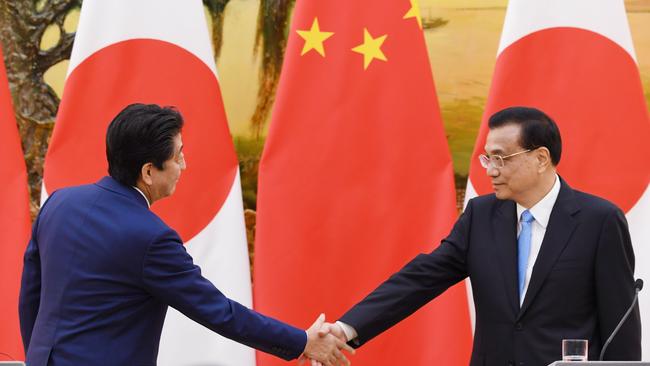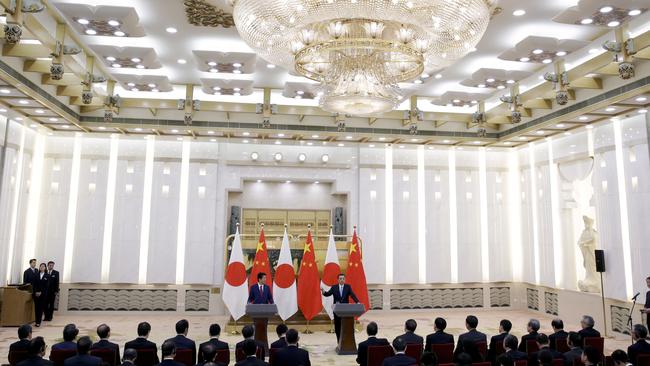China, Japan ink flurry of infrastructure deals as Abe visits Beijing
China and Japan have agreed to co-operate in developing Asian infrastructure during first formal visit in seven years.

China and Japan agreed Friday to co-operate in developing cities and other infrastructure in Asia, part of a rapprochement during the first formal visit by a Japanese leader to China in seven years.
Companies and official bodies of the two nations signed more than 50 agreements to co-operate on projects in third countries. That was a key ask by Beijing, which is looking for partners for an international infrastructure-building initiative.
“We have returned relations to the proper track,” Chinese Premier Li Keqiang said after meeting Japanese Prime Minister Shinzo Abe.
Mr Abe said the two countries would work to ensure that “neither is a threat to the other.” He was scheduled to meet President Xi Jinping later Friday.
Ties have warmed recently between Asia’s two largest economies, impelled in part, analysts say, by China’s need for friends in the region while it battles President Trump over trade issues. Japan also is looking for better relations because China is its biggest export market and a source of tourists.
Mr Li made a nod toward Japan’s concern over China’s bid for dominance in next-generation technologies, saying Beijing would “firmly protect” intellectual-property rights and work with Tokyo to promote global free trade. Neither leader directly mentioned President Trump or US tariffs on Chinese goods.

Relations between Beijing and Tokyo chilled in 2012 over a territorial dispute involving islands in the East China Sea, which Japan controls and China claims. While the dispute remains unresolved, both countries have sought to avoid inflammatory statements recently.
When Japan disclosed a submarine drill in the South China Sea in September, where China has asserted broad territorial claims, Beijing issued only a mild statement in response.
Mr Abe was greeted at Beijing’s Great Hall of the People on Friday by a People’s Liberation Army band playing the Japanese national anthem, which calls for the everlasting reign of the emperor, under whose name Japan occupied China before and during World War II.
It was the first official visit by Mr Abe since he took office for his current term in 2012, although he has visited China for international gatherings. The last Japanese prime minister to make an official visit to Beijing was Yoshihiko Noda in 2011.
The agreements on developing Asian infrastructure could advance the signature Belt and Road Initiative of President Xi, which calls for infrastructure investments through Eurasia, although Mr. Abe didn’t characterise them that way.
Without mentioning the Belt and Road program, Mr Abe reiterated Japanese concerns, saying projects in developing nations should be transparent and shouldn’t force those nations to pile up too much debt.
Dow Jones



